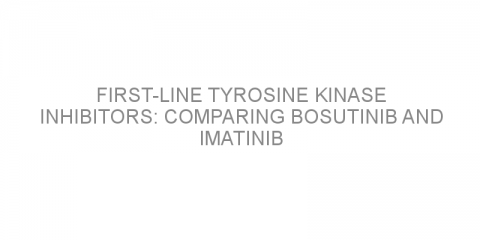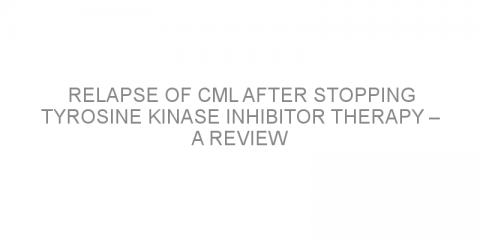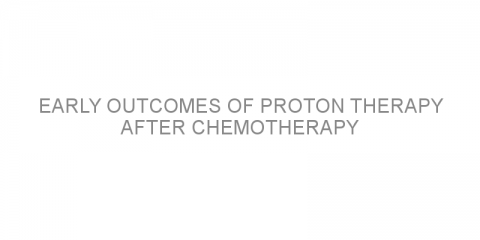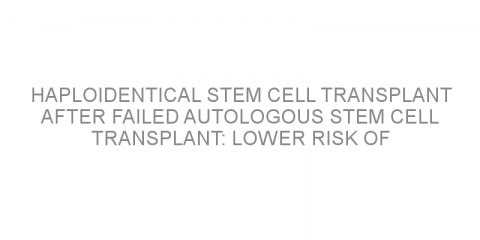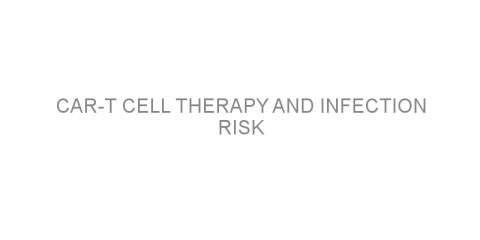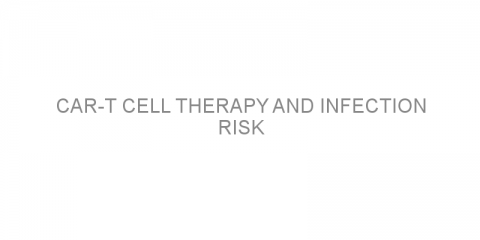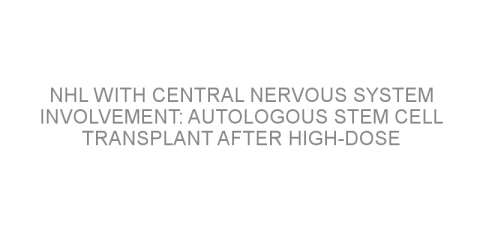In a nutshell This study looked at different combinations of local and systemic therapy for treating patients with advanced non-small-cell lung cancer (NSCLC). The authors concluded that this type of aggressive combination therapy could improve survival rates of these patients. Some background Roughly half of patients with NSCLC are not diagnosed...
Read MoreCurrent treatment status-Undergoing active treatment Posts on Medivizor
Abiraterone acetate and docetaxel with androgen deprivation therapy in high risk and metastatic hormone naive prostate cancer
In a nutshell This study aimed to find out if androgen deprivation therapy (ADT) is more effective used with docetaxel (Taxotere) or abiraterone (Zytiga). There was no significant difference found between the two treatment options. Some background Androgen deprivation therapy (ADT) is a treatment used for advanced prostate...
Read MoreSwitching between tyrosine kinase inhibitors: 2-year follow-up of nilotinib after imatinib
In a nutshell This study examined outcomes of nilotinib (Tasigna) as a second-line therapy over 2 years in patients with chronic myeloid leukemia (CML). The results of this observational study add valuable information to the body of evidence on the effectiveness of nilotinib after imatinib in patients with chronic-phase CML. Some background...
Read MoreCan acupuncture improve fatigue during cancer treatment?
In a nutshell This study looked at whether acupuncture could improve cancer related fatigue for patients with non-small-cell lung cancer (NSCLC). The authors concluded that acupuncture is safe and may be beneficial at improving fatigue in these patients during their treatment regimes. Some background Fatigue is one of the most common side effects...
Read MoreDecoding Monoclonal Antibodies
Video information: What are monoclonal antibodies targeting in the fight against CLL? Join us to hear from experts, Dr. Stephen Spurgeon and Dr. Jeff Sharman, as they dissect the scientific terminology that describes the monoclonal antibody family and their intended targets in the body. Transcript: Andrew Schorr: We have all these other drugs...
Read MoreFirst-line tyrosine kinase inhibitors: Comparing bosutinib and imatinib
In a nutshell This study compared the effectiveness of two types of tyrosine kinase inhibitors – imatinib (Gleevac) and bosutinib (Bosulif) – for chronic myeloid leukemia (CML). Researchers reported higher treatment response rates with bosutinib than with imatinib. Some background Many patients with CML...
Read MoreRelapse of CML after stopping tyrosine kinase inhibitor therapy – a review
In a nutshell This study reviewed evidence on relapsing after discontinuing TKI therapy for chronic myeloid leukemia (CML). Some background Major molecular response (MMR) is a response to treatment where hardly any genetic abnormalities can be found in the bone marrow. Treatment-free remission (sustained MMR) is often considered the main goal of...
Read MoreEarly outcomes of proton therapy after chemotherapy
In a nutshell This study examined outcomes for patients with Hodgkin lymphoma receiving chemotherapy followed by proton therapy. Researchers reported good disease control and a low rate of side effects at 3 years. However, continued follow-up is needed. Some background The combination of chemotherapy and radiation therapy provides the best...
Read MoreHaploidentical stem cell transplant after failed autologous stem cell transplant: Lower risk of disease progression compared to identical-matched donors
In a nutshell This study examined the effect of donor type on allogeneic stem cell transplant outcomes in patients with relapsed Hodgkin lymphoma. This study reported reduced disease progression in patients with partially matched donors compared to identical matches. Some background While Hodgkin lymphoma is a curable disease, some patients...
Read MoreCAR-T cell therapy and infection risk
In a nutshell This study examined infection risk in leukemia and lymphoma patients treated with CAR-T cell therapy, a new type of immunotherapy. Researchers reported that infection rates were comparable to other salvage therapies. Some background Chimeric antigen receptor (CAR) T-cell therapy helps the immune system to fight cancer cells. In...
Read MoreCAR-T cell therapy and infection risk
In a nutshell This study examined infection risk in leukemia and lymphoma patients treated with CAR-T cell therapy, a new type of immunotherapy. Researchers reported that infection rates were comparable to other salvage therapies. Some background Chimeric antigen receptor (CAR) T-cell therapy helps the immune system to fight cancer cells. In...
Read MoreNHL with central nervous system involvement: Autologous stem cell transplant after high-dose chemotherapy an effective treatment option
In a nutshell This study examined outcomes of autologous stem cell transplants after high-dose chemotherapy in non-Hodgkin lymphoma (NHL) patients with central nervous system (CNS) involvement. This study reported durable remission and good disease control for NHL with CNS involvement. Some background Many forms of NHL are treatable. When...
Read More




